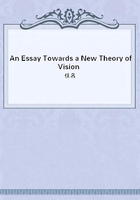These and numberless other marvels recorded in the history, not of past events, but of permanent localities, I have no time to enlarge upon and diverge from my main object; but let those sceptics who refuse to credit the divine writings give me, if they can, a rational account of them.For their only ground of unbelief in the Scriptures is, that they contain incredible things, just such as I have been recounting.For, say they, reason cannot admit that flesh burn and remain unconsumed, suffer without dying.Mighty reasoners, indeed, who are competent to give the reason of all the marvels that exist! Let them then give us the reason of the few things we have cited, and which, if they did not know they existed, and were only assured by us they would at some future time occur, they would believe still less than that which they now refuse to credit on our word.For which of them would believe us if, instead of saying that the living bodies of men hereafter will be such as to endure everlasting pain and fire without ever dying, we were to say that in the world to come there will be salt which becomes liquid in fire as if it were in water, and crackles in water as if it were in fire; or that there will be a fountain whose water in the chill air of night is so hot that it cannot be touched, while in the heat of day it is so cold that it cannot be drunk; or that there will be a stone which by its own heat burns the hand when tightly held, or a stone which cannot be extinguished if it has been lit in any part; or any of those wonders I have cited, while omitting numberless others? If we were to say that these things would be found in the world to come, and our sceptics were to reply, "If you wish us to believe these things, satisfy our reason about each of them," we should confess that we could not, because the frail comprehension of man cannot master these and such-like wonders of God's working; and that yet our reason was thoroughly convinced that the Almighty does nothing without reason, though the frail mind of man cannot explain the reason; and that while we are in many instances uncertain what He intends, yet that it is always most certain that nothing which He intends is impossible to Him; and that when He declares His mind, we believe Him whom we cannot believe to be either powerless or false.Nevertheless these cavillers at faith and exactors of reason, how do they dispose of those things of which a reason cannot be given, and which yet exist, though in apparent contrariety to the nature of things? If we had announced that these things were to be, these sceptics would have demanded from us the reason of them, as they do in the case of those things which we are announcing as destined to be.
And consequently, as these present marvels are not non-existent, though human reason and discourse are lost in such works of God, so those things we speak of are not impossible because inexplicable; for in this particular they are in the same predicament as the marvels of earth.
CHAP.6.--THAT ALL MARVELS ARE NOT OF NATURE'S PRODUCTION, BUT THATSOME ARE DUE
TO HUMAN INGENUITY AND OTHERS TO DIABOLIC CONTRIVANCE.
At this point they will perhaps reply, "These things have no existence;we don't believe one of them; they are travellers' tales and fictitious romances;" and they may add what has the appearance of argument, and say, "If you believe such things as these, believe what is recorded in the same books, that there was or is a temple of Venus in which a candelabrum set in the open air holds a lamp, which burns so strongly that no storm or rain extinguishes it, and which is therefore called, like the stone mentioned above, the asbestos or inextinguishable lamp." They may say this with the intention of putting us into a dilemma: for if we say this is incredible, then we shall impugn the truth of the other recorded marvels; if, on the other hand, we admit that this is credible, we shall avouch the pagan deities.But, as I have already said in the eighteenth book of this work, we do not hold it necessary to believe all that profane history contains, since, as Varro says, even historians themselves disagree on so many points, that one would think they intended and were at pains to do so; but we believe, if we are disposed, those things which are not contradicted by these books, which we do not hesitate to say we are bound to believe.But as to those permanent miracles of nature, whereby we wish to persuade the sceptical of the miracles of the world to come, those are quite sufficient for our purpose which we ourselves can observe or of which it is not difficult to find trustworthy witnesses.Moreover, that temple of Venus, with its inextinguishable lamp, so far from hemming us into a corner, opens an advantageous field to our argument.For to this inextinguishable lamp we add a host of marvels wrought by men, or by magic,--that is, by men under the influence of devils, or by the devils directly,--for such marvels we cannot deny without impugning the truth of the sacred Scriptures we believe.That lamp, therefore, was either by some mechanical and human device fitted with asbestos, or it was arranged by magical art in order that the worshippers might be astonished, or some devil under the name of Venus so signally manifested himself that this prodigy both began and became permanent.















